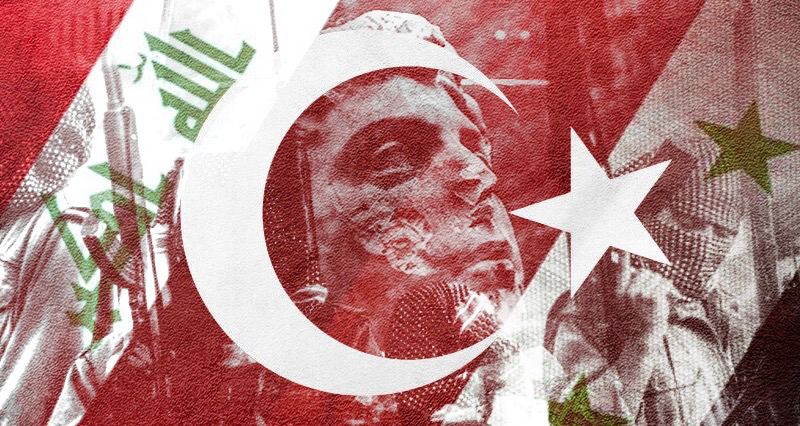By Adem Kılıç *
Türkiye’s military presence and operations in Iraq are also having an impact in Iraq after Syria, as a manifestation of Türkiye’s “eradicating terrorism at its source” approach since 2017.
Launched in 2019, the Claw Operations aimed to end the presence of the terrorist organization PKK in northern Syria and Iraq and to sever the terrorists’ ties between Türkiye and Iraq, and it is clear that these operations have been successful.
At this point, these operations, which have been concentrated especially in the Metina, Zap and Avaşin regions, were aimed at ending the PKK’s presence and preventing its restructuring by establishing permanent bases in these regions.
And it seems that the operations have been and continue to be a great success.
In fact, Türkiye continues to take joint steps with Iraq to reinforce this determination.
Last week, Iraq and Türkiye signed an important agreement to strengthen cooperation in a number of areas, including military, security, economy and water resources management, after Iraq designated the terrorist organization PKK and its extensions as “banned organizations” following Türkiye’s decisive steps.
Under the agreement, Türkiye will establish a joint military training facility with Iraq in Bashiqa, intensify joint operations against the PKK, and guarantee the infrastructure and security of the Development Road project under the Ankara Declaration signed last year between President Erdoğan and Iraqi Prime Minister Sudani.
Türkiye’s military presence in northern Syria, concentrated in areas under the control of the Syrian Democratic Forces, remains significant, and Iraq is as concerned as Türkiye about the presence of these US-backed groups in Iraq.
It is also important to note that the Syrian Democratic Forces, which is composed of extensions of the terrorist organization PKK, is still supported by the US, which adds to the complexity of the situation.
Nevertheless, Türkiye is gradually consolidating its military presence in the region and has signaled more military operations in the region, including in Tal Rifaat and Manbij.
All these developments are undoubtedly a balancing act in terms of “hostility” and “cautious steps towards reconciliation” and are reflected in Turkish-Syrian relations in a way that characterizes a broad combination in Turkish foreign policy.
Security-level meetings between Türkiye and Syria have been ongoing for nearly 15 months, mainly on counterterrorism cooperation, increased joint diplomatic efforts and the return of Syrian refugees.
However, there are still many major challenges due to the consequences of the Syrian war that started in 2011 and radically affected the balance in the region.
In particular, the Syrian government has demanded that the Turkish army completely leave Syrian territory, according to reports from the Russian-brokered talks that began last year and were attended by Hakan Fidan, then undersecretary of MIT, and Hulusi Akar, then defense minister.
Türkiye, on the other hand, tried to explain to the Syrian government its sensitivity to both Syria’s territorial integrity and to prevent the establishment of a terrorist state on its border.
As a matter of fact, it is clear that Türkiye has been successful in this regard, especially from the recent operations of the Syrian army against the PKK’s extensions in the region. According to the information reflected in the international press, there have been more than 20 clashes between the Syrian army and the PKK terrorist organization in the region in the last month alone.
On the other hand, last week Iran voiced its support for the reconciliation between Türkiye and Syria, something it has not done since 2011, even during the Astana talks, while Russia, under the pressure of the Ukraine war, has shown an approach that reveals that it has increased its pressure on Assad for this reconciliation
Under the name of the so-called fight against DAESH, the threat of the terrorist organization and its extensions operating in Iraq and Syria with the support of the US and the so-called proxy in the Turkish Grand National Assembly, which is unprecedented in the world, and the project of establishing a terrorist state is now a dream with Türkiye’s diplomatic and military moves.
While Türkiye has achieved great success with its military and diplomatic moves, a fact known by all parties is still hidden. Türkiye can combine its power in the field with diplomacy through a new military operation at any time.
Both regional and international interlocutors now know that the motto is ready for those who want to test Türkiye’s power.
If necessary; “one night suddenly, we can come.”
* Political scientist

















Leave a Reply